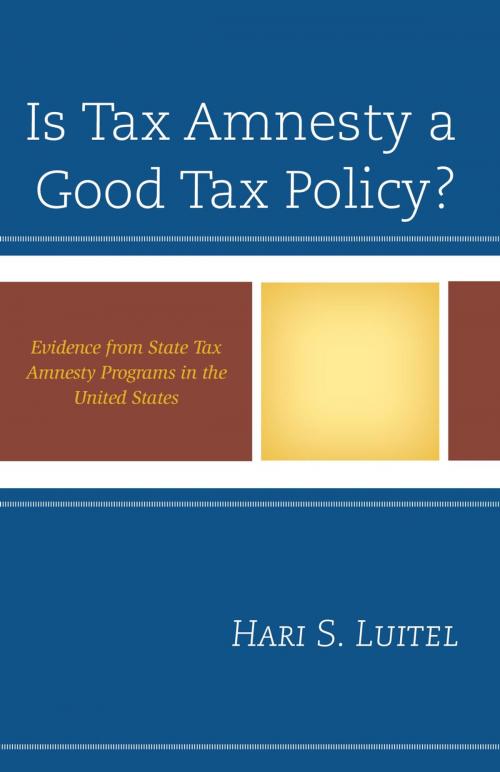Is Tax Amnesty a Good Tax Policy?
Evidence from State Tax Amnesty Programs in the United States
Business & Finance, Finance & Investing, Taxation, Economics, Macroeconomics| Author: | Hari S. Luitel | ISBN: | 9781498500098 |
| Publisher: | Lexington Books | Publication: | August 20, 2014 |
| Imprint: | Lexington Books | Language: | English |
| Author: | Hari S. Luitel |
| ISBN: | 9781498500098 |
| Publisher: | Lexington Books |
| Publication: | August 20, 2014 |
| Imprint: | Lexington Books |
| Language: | English |
Is a tax amnesty a good tax policy? To address this question, this book examines whether a typical state tax amnesty is likely to generate substantial short term tax revenues without a corresponding significant negative effect on long run tax compliance. Although U.S. states have several motivations for implementing tax amnesties, the underlying objective boils down to raising tax revenues, either through the taxes collected immediately or through additions of new tax payers to the tax rolls and through an enlarged tax base. Are state tax amnesties successful in achieving this basic objective (i.e. bringing revenues to the state treasury that would not otherwise be collected)? This book revisits this critical question, given the significant fiscal crisis that many state governments have confronted since the turn of the twenty-first century.
Is a tax amnesty a good tax policy? To address this question, this book examines whether a typical state tax amnesty is likely to generate substantial short term tax revenues without a corresponding significant negative effect on long run tax compliance. Although U.S. states have several motivations for implementing tax amnesties, the underlying objective boils down to raising tax revenues, either through the taxes collected immediately or through additions of new tax payers to the tax rolls and through an enlarged tax base. Are state tax amnesties successful in achieving this basic objective (i.e. bringing revenues to the state treasury that would not otherwise be collected)? This book revisits this critical question, given the significant fiscal crisis that many state governments have confronted since the turn of the twenty-first century.















